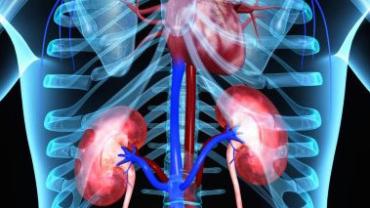
According to an article published last month in the Clinical Journal of the American Society of Nephrology (CJASN) a diet rich in the mineral potassium may help protect the heart and kidneys of diabetic patients.
Potassium is essential for the proper function of all cells. It is an electrolyte and is crucial for heart function. Many individuals obtain sufficient amounts of potassium from their diet; however people who consume a western diet may not be meeting their metabolic needs especially when chronic metabolic conditions are present.
Urinary potassium has been shown to correlate with intake amounts. In this new study researchers demonstrated that higher levels of urinary potassium excretion were linked with a slower decline of kidney function and a lower prevalence of cardiovascular issues in diabetic patients with normal kidney function.
Patients with type 2 diabetes are at an increased risk of kidney and heart diseases. One of the challenges for these patients is in choosing the appropriate foods to eat. They often receive mixed messages from practitioners and various associations or they do not receive adequate (or any) patient education on proper lifestyle and nutritional recommendations. The results of this study demonstrate the importance of a diet rich in potassium which includes foods such as bananas avocados cantaloupes tomatoes salmon cod chicken and other meats.
Potassium's role in cardiovascular health is well documented. Previous studies have shown that individuals with a higher sodium-potassium ratio have a higher risk of heart disease and all-cause mortality. Additional studies demonstrate that heart attack patients who have moderate potassium levels between 3.5 and 4.5 mEq/L have a lower risk of death. Research has also linked low levels of potassium with high blood pressure.
Practitioners may want to consider recommending potassium supplements in order to help patients decrease blood pressure. I have personally seen this work effectively with my hypertensive patients who have low RBC potassium. That being said a potassium supplement will only lower blood pressure if the patient is deficient. Additional studies suggest that increasing potassium intake helps to reduce the risk of cardiovascular death. It is also important to note that diuretic medications may cause a potassium deficiency.
By Michael Jurgelewicz DC DACBN DCBCN